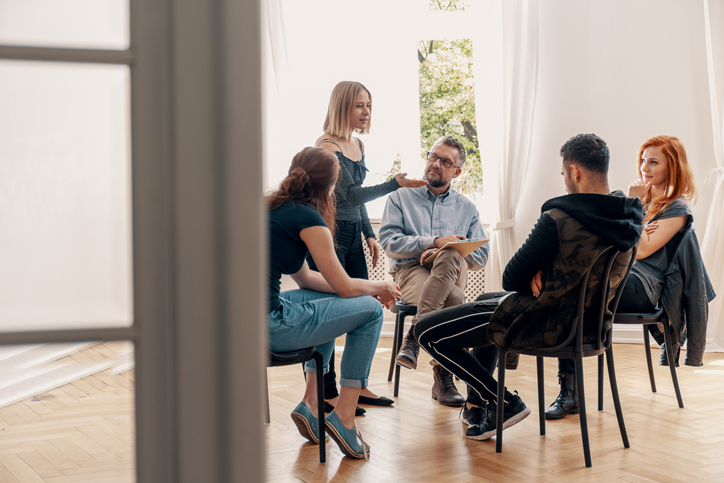Being able to open up to others and express your vulnerabilities, fears, desires, and goals is essential to forming healthy and lasting relationships. It can also be difficult to express your emotions in such a raw and honest way. You might struggle to show your range of emotions with friends and family, even if they do have your best interest at heartIt is often hard to express yourself to the ones you love most. It could be because you have not yet developed the skills necessary to help you discuss how you’re feeling confidently and comfortably.
Have you ever considered group therapy? While it might seem counterintuitive to express yourself to people you don’t know, it can be one of the best things to help strengthen the relationship between yourself and others. Group therapy offers a unique setting where you can feel comfortable opening up and expressing how you feel. Let’s take a look into group therapy and why it can help you discover your emotional range.
A benefit of group therapy is knowing that you are never alone.
You might enter group therapy with the thought that you are unique in your challenges and have specific frightening or unacceptable problems, thoughts, impulses, and fantasies. While it is true that you are unique and might have unique circumstances, you are not alone in your struggles. While being among others in the group, you will discover that your challenges are startlingly similar to another person’s challenges. You might encounter similar themes or problems and mechanisms others have applied to address them.
When you are in a group setting, you will realize that you share similar experiences with others. Not only can this be reassuring, but it allows you the opportunity to let your guard down and open up a little more. Over time, you will continue to grow comfortable and open up as your bonds with your peers deepen.
Group therapy provides you with a community of peers with shared experiences who are willing to help guide and support you in managing your sobriety.
One misconception about group therapy is that everybody takes turns receiving individual therapy from the therapist while others observe. In fact, all members are encouraged to turn to each other for support, feedback, and connection. Therefore, you will be getting feedback from your peers instead of the clinician. The group will support you by listening when you talk and then working through the issues you bring up within the group.
Other members will share their experiences, too, including how they navigate their situations. Such stories offer hope, inspiration, and sometimes suggestions that can help you overcome a challenge in your life.
Group therapy helps you become aware of your feelings and needs and therefore allows you to express them.
It can sometimes become frustrating opening up to friends and family because you feel you can’t convey your needs the way you want. It might be because you think they are too busy or that they don’t take you as seriously because you might become angry or detached when you sense that others are not listening. While in a group therapy session, you will be encouraged to notice how you feel throughout the session and talk about it.
Sometimes you might not realize how you are feeling when you are interacting with other people. It could be because it is challenging to be self-connected when connecting with others. Therefore, it is good to focus on how you feel to know how to respond. Doing so will help you understand your needs and confidently convey them.
Group therapy helps you relate to others in a healthier way.
Sometimes problems can occur within relationships because you and your loved ones aren’t as honest with one another and might hold back to protect feelings. In group therapy, you are in a safe atmosphere where members cannot judge or say harmful things; however, they can provide honest and healthy feedback. By expressing how you communicate with others outside of the group, others can help you see how you and others in the group relate to one another.
Group therapy can also help you relate with others as you might be encouraged to try alternative ways of relating. For example, instead of asking someone a question, you might explain why you’re asking them the question. Doing this allows you to see that you have more choices available for how you relate to others, and this will encourage more thoughtful and healthier ways to communicate outside of the group. It will also promote healthier responses.
At DiscoveryMD, we provide a safe, secure, inspirational, and comfortable space where you can develop the emotional range necessary to express yourself in healthier ways to your friends, family, and peers. If you are currently in need of help, contact us today.
